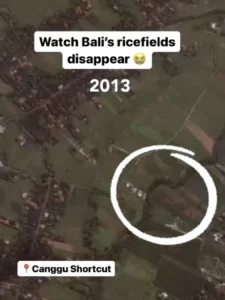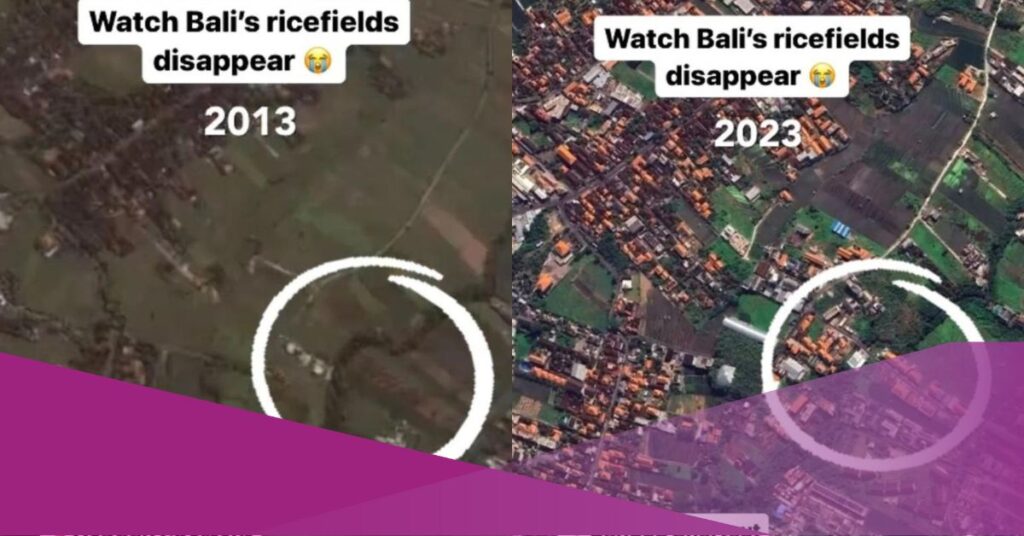A recent Bali’s viral video posted by Gary Bencheghib, co-founder of Sungai Watch, has sent shockwaves across the internet, showcasing satellite images of Bali’s dramatic transformation over the past decade. The video presents a stark contrast between the island’s once-serene rural landscapes and the current proliferation of hotels, restaurants, villas, and resorts, particularly around Canggu.
The images, which have garnered millions of views and sparked widespread discussions on social media, depict the rapid urbanization and commercialization of Bali, traditionally known for its lush rice paddies, farmland, and charming rural villages. The breathtaking beauty and authenticity of these landscapes have been gradually replaced by the demands of tourism development, leading many to question the future of this island paradise.
In Bencheghib’s viral video, the contrast between Bali’s past and present is striking. Pictures of verdant rice terraces, vibrant farmlands, and traditional Balinese villages have given way to a sea of concrete and glass. While the growth of Bali’s tourism industry has undoubtedly bolstered the local economy, the price paid in terms of cultural preservation and environmental impact has raised concerns.

Bali, once a haven for travellers seeking authentic experiences and a deep connection with nature, has been transformed into a bustling hub of hotels and resorts, targeting various demographics of tourists. The allure of Bali’s picturesque landscapes and vibrant culture has drawn travellers from all corners of the world, inadvertently fueling the tourism boom that has swept the island.
However, the rapid development has prompted many to question whether Bali is at a crossroads in its history, torn between the economic benefits of tourism and the need to preserve its cultural heritage and natural beauty. The pressure on the island’s resources and infrastructure has led to concerns about sustainability, environmental degradation, and the potential loss of the unique charm that has made Bali a world-renowned destination.
This transformation has led to a growing movement among residents, activists, and environmentalists advocating for a more balanced approach to development. Bali’s stakeholders are increasingly exploring ways to promote sustainable tourism practices, eco-friendly initiatives, and responsible development that honours the island’s cultural and environmental identity.
One possible solution involves stricter regulations and zoning laws that aim to control the number and location of hotels and resorts. Additionally, various initiatives are in place to promote eco-tourism, community-based tourism, and eco-conscious practices throughout the island. Bali is working towards striking a delicate equilibrium between economic growth and the preservation of its natural beauty and cultural heritage.
The Bali’s viral video posted by Gary Bencheghib has initiated a vital conversation about the future of Bali and the importance of protecting its unique identity amidst the relentless wave of development. As Bali lovers across demographics come together to discuss the island’s future, the hope remains that sustainable practices and responsible tourism will guide the path ahead, ensuring that Bali continues to captivate and inspire travellers for gene
Interested in this topic? Check out our other articles from Social Expat:

































